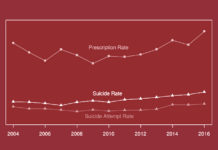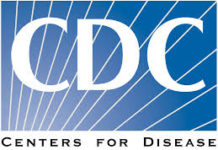Is There a Small Group for Whom Antidepressants Are Effective?
In a new study, researchers found no evidence of antidepressant group variance, which means that there's no particular group of patients who improve more than others on the drug.
Zoloft Does Not Improve Depression, Even in Severe Cases, Study Finds
Despite their finding, the researchers suggest that SSRIs be given to people who do not meet criteria for depression or anxiety.
Two Years Tapering an Antidepressant – A Life-Changing Experience That I Didn’t Want
My heart goes out to anyone experiencing withdrawal, but especially those who are so ill they can’t work and are struggling to navigate a heartless and cynical ‘benefits’ system. Their only crime is to have experienced difficulty from a prescribed treatment, yet they are treated as medical pariahs.
Researchers Question Link Between Genetics and Depression
A new study, published in the journal Molecular Psychiatry, found no link between genetics and the occurrence of depressive symptoms.
Randomized Controlled Trials of Psychiatric Drugs Tell of Harm Done
The most important data in an RCT is not whether the drug provides a statistically significant benefit over placebo. The most important data is the “number needed to treat” calculation (NNT). For the person considering taking an antidepressant or an antipsychotic, the NNT data provides the “math” needed to weigh the potential benefit of taking the drug against the potential harm of doing so.
Suicides Are Increasing – And So Are Antidepressant Prescriptions
Disturbingly, our study and others reveal that the black box warning is now ignored in many countries, since antidepressant prescriptions for children are on the rise again. Despite increasing certainty that antidepressants are ineffective and likely cause suicidal behavior in young people, psychiatry continues to claim that they reduce suicide risk.
German Psychologists Declare “the Drugs Don’t Work”
Jürgen Margraf and Silvia Schneider, both well-known psychologists at the University of Bochum in Germany, claim that psychotropic drugs are no solution to mental...
The Long-term Consequences of Antidepressant Use: An Interview with Michael Hengartner
Researchers at the University of Zurich, led by Michael Hengartner, recently reported that antidepressant use was associated with worse outcomes in patients followed over 30 years. Here Hengartner provides more information about the study methodology and their findings.
Treating Metabolic Conditions May Resolve Some Depressive Symptoms
New research suggests that treatable metabolic abnormalities underlie some treatment-resistant cases of depression—and treating the metabolic condition has the possibility of dramatically reducing depressive symptoms
Antidepressant Use Linked to Longer, More Frequent Psychiatric Rehospitalization
New study finds that antidepressants may negatively impact recovery after psychiatric hospitalization.
Are Antidepressants Enabling the Population to Tolerate the Intolerable?
Just how sad is our current state of affairs that it causes so much of the population to feel depressed and/or anxious? Just how much are these drugs changing the state of our society as a whole? Are the drugs desensitizing the population to the point that it will tolerate social conditions it would otherwise find intolerable?
Antidepressants Actually Reduce Serotonin Levels
Common scientific beliefs about serotonin levels in depression and how antidepressants act on the brain appear to be completely backwards.
Scientists Clarify Risks of Augmenting with Antipsychotic Medications for Depression
The researchers found that while antipsychotic drugs may be slightly more effective than alternative antidepressants, they come with a much higher side effect burden.
On Pharma, Corruption, and Psychiatric Drugs
"My studies in this area lead me to a very uncomfortable conclusion: Our citizens would be far better off if we removed all the psychotropic drugs from the market, as doctors are unable to handle them. It is inescapable that their availability creates more harm than good."
- Peter Gøtzsche, MD; Co-founder of the Cochrane Collaboration
NICE Guideline Update Acknowledges Severe Antidepressant Withdrawal
A new update to the NICE guideline for depression suggests providers discuss long-term, severe antidepressant withdrawal symptoms.
Allen Frances and the Increasing Use of Antidepressants
Much of what Allen Frances says is sensible, but it would be more convincing if he would lay the responsibility for the present state of affairs squarely where it belongs: on psychiatry. I suggest, in all sincerity, that Dr. Frances abandon his attempt to absolve psychiatry from blame, and that he join the anti-psychiatry movement.
Playing the Odds, Revisited
It is hard to believe that a year has gone past since I posted Playing the Odds: Antidepressant Withdrawal and the Problem of Informed Consent. The feedback I received underscored the more controversial aspects of SSRI toxicity. Common themes concerned the abrupt onset of new symptoms 3 to 12 months after stopping the drug, reinstatement of the drug failing to help withdrawal related symptoms, the possibility that withdrawal-related symptoms can persist indefinitely and concerns about using benzodiazepines to help with tardive akathisia.
New Antidepressant Shows Little Benefit, Significant Risks
Patient Drug News advises avoiding use of the antidepressant Vortioxetine (also called Brintellix or Trintellix), because the most recent evidence from the FDA shows...
Part V: The Michelle Carter Texting Trial Becomes a Witch Hunt
In Parts I-IV, I discuss how the DA succeeded in gaining the conviction by means of highly emotional and at times misleading and untruthful manipulations in public and in the courtroom. Here I want to look more closely at the DA’s motivation and other activities. Was it a personal vendetta?
Researchers Ask, ‘Why Do Antidepressants Stop Working?’
An international group of researchers, including several with financial ties to manufacturers of antidepressants, explore possible explanations for why long-term users of antidepressants become chronically depressed.
Fear and Belief in “Chemical Imbalance” Prevent People from Coming Off Antidepressants
Researchers interviewed people who were given medical advice to discontinue antidepressants.
Pharma Responds: Antidepressants Really Work. Really?
A recent meta-analysis published in Molecular Psychiatry claims to have settled the debate on whether the slight superiority of antidepressants in trials is due to side effects breaking blind. The principle author was quoted as saying: "once and for all, we've answered the SSRI question." Have they?
United Nations Statement Criticizes Medicalization of Depression on World Health Day
"There is a need of a shift in investments in mental health, from focusing on 'chemical imbalances' to focusing on 'power imbalances' and inequalities"
Suicide Rates Rise While Antidepressant Use Climbs
Multiple media sources are reporting on new data from the CDC revealing a substantial increase in the suicide rate in the United States between 1999...
How Antidepressants Shape Young Women’s Sense of Self
Young women’s narratives indicate ways antidepressants have shaped their sense of self.































